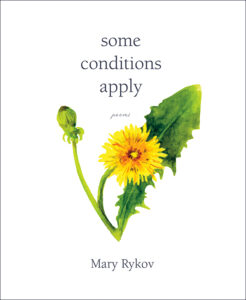I am a published author and poet with a PhD in Adult Education and expertise in music therapy. You can read samples of my writing here. You can access my poetry profile here. You can access my poetry collection, some conditions apply, from Inanna Publications, your preferred bookseller, or your library.
My editing lends precision and clarity to your words without masking your unique voice. Your meaning and purpose will shine. I welcome book-length academic dissertations, theses, or manuals and concise business letters or reports. My preferred subjects include health, safety, medicine, education, humanities, musicology, poetry, fiction and creative nonfiction.
I provide substantive, developmental, stylistic, and copy editing, specializing in scholarly, academic, professional, corporate, memoir, and plain language genres. I outsource transcription of recorded meetings, as well as academic and journalism research. I also review for several publications. I am therefore uniquely positioned to mentor new writers through the submission, review, and re-writing process.
Literary authors and poets may be interested to know I offer innovative ways to enhance creativity using music-evoked imagery. Read about Music-Evoked Imagery for writers and artists.
I provide instructional best practice guidelines for the Seminars Committee of the Editors’ Association of Canada (Toronto Branch). Most recently I was project lead to revise the Guidelines for Ethical Editing of Student Texts. You can access my EAC editing profile here.
Member, EDITORS CANADA
Writing is a kind of wrestling with the opacities of our own understanding, with the limits of the language we use. And like Jacob’s wrestling with the angel, it is done to win a blessing. Pat Lowther, “A Kind of Wrestling,” ca. 1964-65.
A great editor is part therapist, part technician and part confessor. Michael Redhill, The Toronto Star, 02 December 2017.
Resources
Blicq, R. & Moretto, L. A. Writing reports that get results, 3rd edition. John Wiley & Sons, 2004.
Cohen, D. H. & Stern, V. Observing and recording the behavior of young children. Teachers College Press, Columbia University, 1958.
Davidson, C. & Fraser, G. Writing poetry: Creative and critical approaches. Palgrave Macmillan, 2009.
Fish, S. How to write a sentence and how to read one. Harper, 2011.
Glover, D. The erotics of restraint: Essays on literary form. Biblioasis, 2019.
Glover, D. Attack of the copula spiders & other essays on writing. Biblioasis, 2012.
Goldberg, N. Writing down the bones: Freeing the writer within. Shambhala, 1986.
Hodgins, J. A passion for narrative: A guide for writing fiction. McClelland & Stewart, 2001, 1993.
Holoman, D. K. Writing about music: A style sheet, 2nd edition. University of California Press, 2008.
Howard, R. M. & Taggart, M. R. Research matters: A guide to research writing. McGraw-Hill, 2014.
King, S. On writing: A memoir of the craft. Scribner, 2000.
Lamott, Bird by Bird: Some instructions on writing and life. New York, Pantheon Books, 1995.
LaPlante, A. The making of a story: A Norton guide to creative writing. W. W. Norton & Company, 2007.
McWhorter, J. Doing our own thing: Degradation of language and music and why we should, like, care. Gotham, 2003.
Norris, M. Between you & me: Confessions of a comma queen. W. W. Norton & Company, 2015.
Olsen, L. & Dodge, R. architectures of possibility: after innovative writing. Guide Dog Books, 2012.
Pattison, P. Writing better lyrics. Writers Digest Books, 1995.
Ruvinsky, Maxine. Practical grammar: A Canadian writer’s resource, 3rd edition. Oxford University Press, 2013.
Salkind, M. J. Statistics for people who (think they) hate statistics, 3rd edition. CA: Sage, 2008.
Strunk, W. & White, E. B. The elements of style, 3rd edition. Macmillan, 1979.
Ueland, B. If you want to write: A book about art, independence and spirit, 2nd edition. Graywolf Press, 1987.



